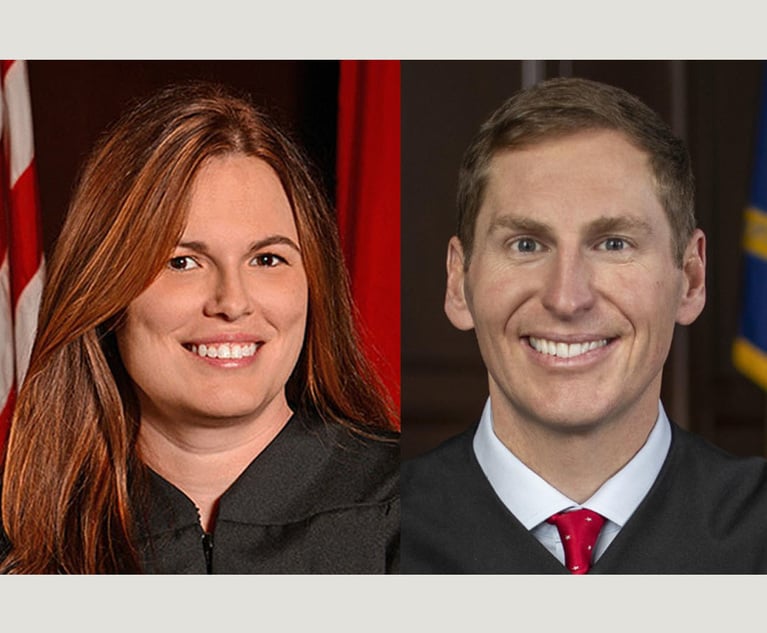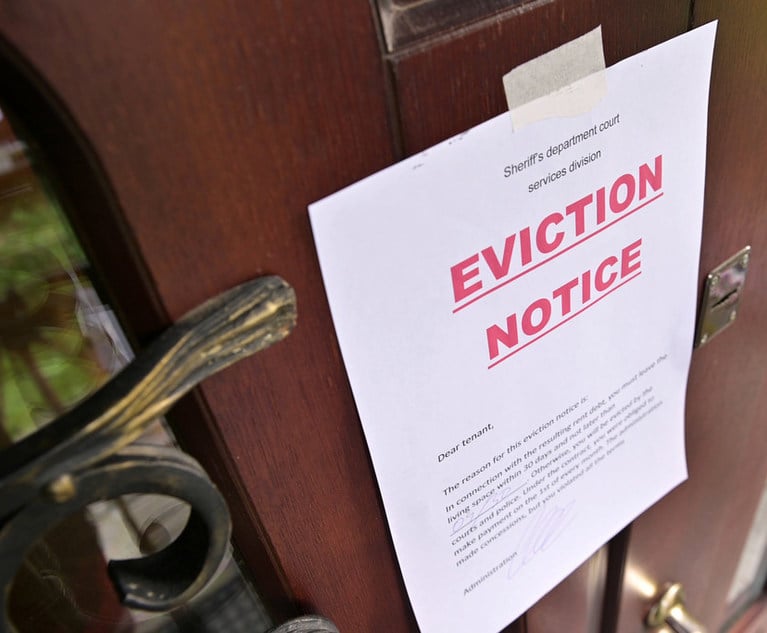Gary

February 03, 2025 | New York Law Journal
Do Tenants Have To Pay if They Want To Stay?The New York real estate industry has seen more legislative reform within the past five years than ever before. With all the recent protection provided to tenants, the question is now raised—can a landlord require a tenant to pay rent and/or use and occupancy during the pendency of a case? The answer is simply, “Yes.”
By Gary M. Rosenberg and Alex M. Estis
10 minute read

January 13, 2025 | Daily Report Online
Fourth Circuit Seeks More Legal Briefs in Unresolved N.C. Supreme Court ElectionThe order means that both the U.S. Court of Appeals for the Fourth Circuit and the state Supreme Court likely will consider simultaneously substantial matters related to the race between Democratic Associate Justice Allison Riggs and Republican challenger
By Gary D. Robertson
4 minute read

January 09, 2025 | New Jersey Law Journal
Dispute Resolution Boards—Getting Real Time Decisions on Construction ProjectsIn the construction industry, stakeholders are often looking for new ways to improve efficiency across the stages of the project, while also focusing on ways for the project to remain cost-effective. This goal can often be hindered by the threat of litigation or arbitration when disputes arise in the midst of the project. An increasingly popular solution to this problem is the use of dispute resolution boards.
By Gary Strong and Elizabeth A. Napierkowski
7 minute read

December 03, 2024 | New York Law Journal
Are New York City Housing Providers Ready for the Fair Chance for Housing Act?New York housing agencies have long taken the position that blanket denial of applicants with criminal convictions has a disparate impact on persons of color. Here, Gary Rosenberg and Cori Rosen discuss the ‘Fair Chance for Housing Act’ effective Jan. 1, 2025, which addresses this issue - specifically criminal background checks.
By Gary M. Rosenberg and Cori A. Rosen
10 minute read

October 01, 2024 | New York Law Journal
To Appeal or Not To Appeal: That Is the QuestionTo appeal or not to appeal, that is a question faced eventually by every litigator. But questions relating to the facts of a case or the applicable law aside (for the moment), what do the statistics demonstrate for the appellate practitioner?
By Gary M. Rosenberg and Bradley Silverbush
8 minute read
September 27, 2024 | Corporate Counsel
Mediating Trade Secret Cases: Insights for In-House CounselTrade secret disputes involving high-level executives or R&D employees are complex and demand immediate attention due to the high stakes and litigation…
By By Karl Bayer and Gary Fowler
7 minute read

August 06, 2024 | New York Law Journal
Retroactively Reshaping the Analysis of Succession Rights: When Does a Tenant Permanently Vacate an Apartment?Gary Rosenberg and Ethan Cohen explore the part of bill S-2980-C in which the Legislature retroactively defined when a tenant is considered to have "permanently vacated" a rent-stabilized apartment for purposes of determining succession rights for family members, which was previously undefined by the Legislature.
By Gary M. Rosenberg and Ethan R. Cohen
12 minute read

July 02, 2024 | The Legal Intelligencer
Chats With Counsel: A Perfect Privilege StormThe way corporate America communicates has changed (again). While email is still a cornerstone of business communications, the adoption of short-form messaging or collaboration tools with embedded chat features has skyrocketed in recent years, spurred by the necessity of remote work during the COVID-19 pandemic.
By Aurora de Heer, Elizabeth M. Gary and Sheri Graham
8 minute read

July 02, 2024 | Law.com
Consumer Class Actions May Be the Next Wave of PFAS LitigationA new wave of litigation about PFAS (per- and polyfluoroalkyl substances) has begun. If it gains momentum, it could be the biggest yet.
By Matthew J. Malinowski, Gary Feldon and Sebastian Ovalle
7 minute read

June 04, 2024 | New York Law Journal
Understanding Good Cause Eviction: The BasicsOn April 20, 2024 the Good Cause Eviction Law (GCE) was signed into law. Basically, it limits unreasonable rent increases for units that are not already subject to rent regulation, ensures that existing tenants of unregulated apartments are offered renewal leases, and curbs the eviction of free-market tenants except if the owner has "good cause." This article will explore the origins of GCE and explain its key components.
By Anthony J. Virga and Gary M. Rosenberg
10 minute read
Trending Stories
- 1Public Notices/Calendars
- 2Wednesday Newspaper
- 3Decision of the Day: Qui Tam Relators Do Not Plausibly Claim Firm Avoided Tax Obligations Through Visa Applications, Circuit Finds
- 4Judicial Ethics Opinion 24-116
- 5Big Law Firms Sheppard Mullin, Morgan Lewis and Baker Botts Add Partners in Houston



